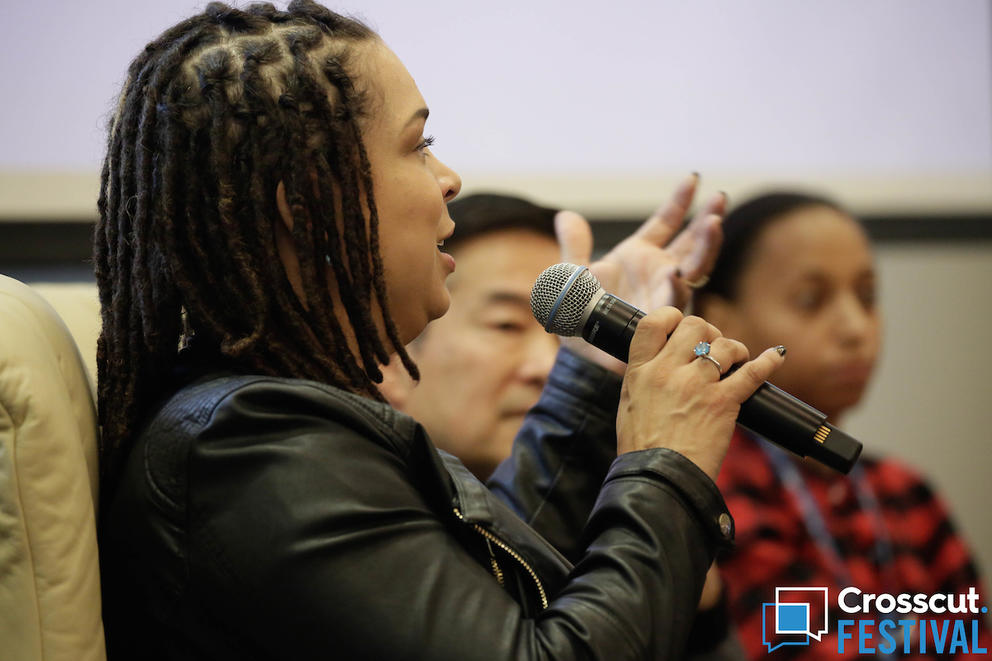Marcus Harrison Green, the panel’s moderator and editor of the South Seattle Emerald, opened the discussion by asking how to redress systemic racism in a nation where, according to opinion polls, over half of white people believe they are the victims of reverse racism.
Japanese American oral historian Tom Ikeda reminded the audience that it took decades to receive acknowledgment for what happened to his community during World War II. “It was an impossible dream to get an apology from the government,” he said.
Natasha Marin, a conceptual artist who started a viral micro reparations website, said she has little faith in white America coming around on these issues. At some point, she said, you have to stop waiting for the entitled kid in class to have an epiphany. She had a name for this philosophy: “Leave Becky stupid.” In other words: “You do what you can with what you have for the folks that are awake already.”
We can't "be constantly waiting for somebody else to define us the way we want to be defined,” said Seattle University political science professor Angelique Davis. “We need to be working to change the narrative.”
In America, that narrative requires holding wildly competing ideas in your head, said longtime Seattle journalist and member of the Shoshone-Bannock Tribes Mark Trahant. As an example, he pointed out that at the same time Thomas Jefferson was waxing poetic about the democratic possibilities of America, he was writing “Notes on the State of Virginia,” in which he recorded his efforts to study a Native burial site.
“That duality of, on one hand, throwing these noble ideas out and saying, 'this is what we're about,' and on the other hand something as despicable as digging up graves ... I think defines the American experience in so many ways,” Trahant said. “Something rises out of these conflicting values.”
One of the lessons that emerges from this profound contradiction is tough for most Americans to swallow — namely, Trahant said, that the nation’s wealth is unimaginable without genocide and slavery.
“The cost of reparations is higher than what the United States is worth,” he said.
Listen to the whole conversation with the Soundcloud link, above.



